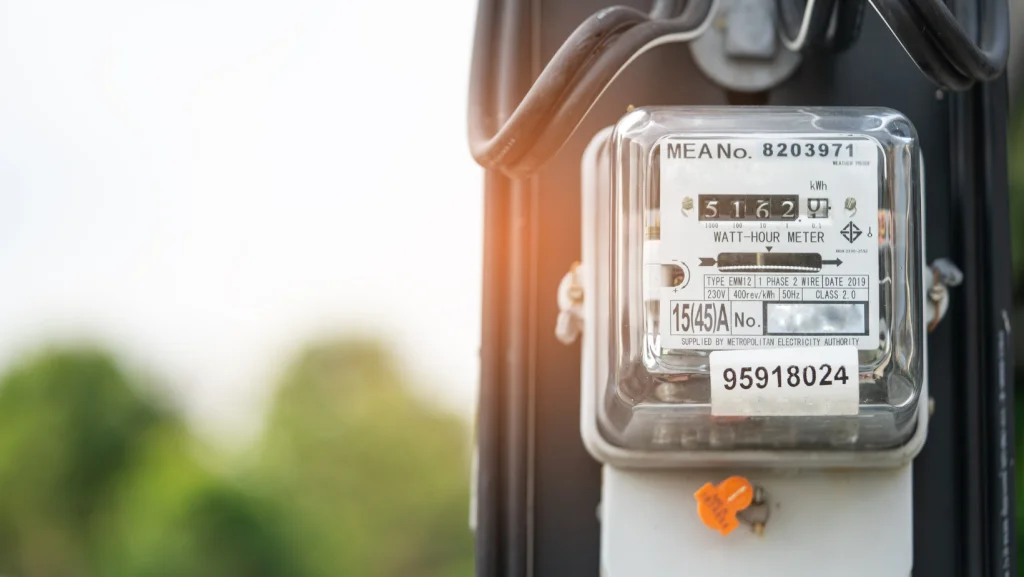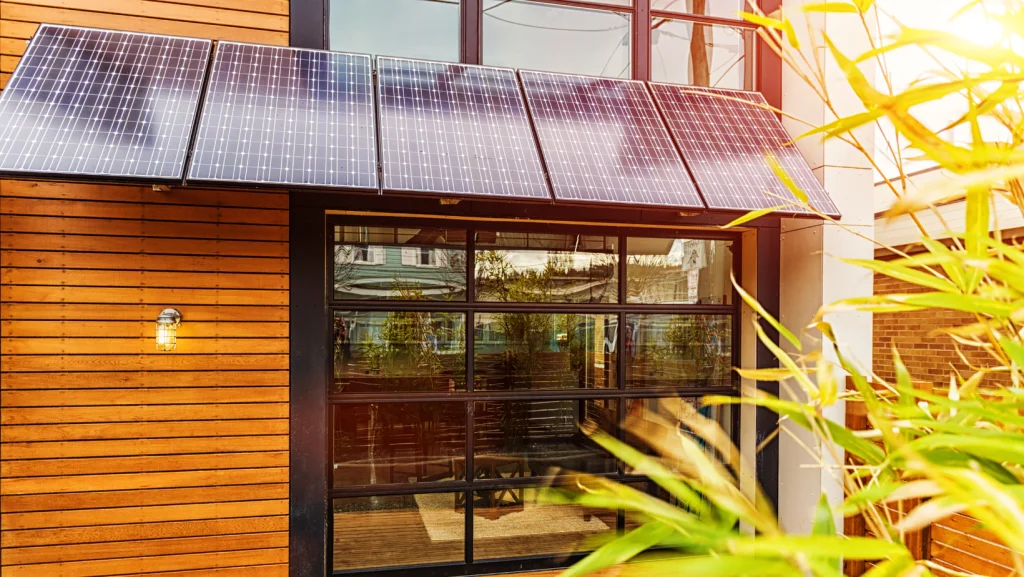If you are looking for ways to begin your transition to solar energy, you may be wondering how many solar panels you’ll need. After all, solar isn’t very useful unless it powers your existing lifestyle. According to the U.S. Energy Information Administration (EIA), the average American residential home consumed about 893 kilowatt hours (kWh) of electricity per month.
However, this number varies from one home to the next based on numerous factors. These factors include how big your house is, your climate, and how energy-efficient your appliances are. In this blog post, we’ll discuss some of the key considerations you should keep in mind. That way, you can determine how many solar panels you need to power your home. Our goal is to help you learn more about solar panels to make you confident about your energy transition.

How Many Solar Panels Do I Need for 1,000kWh per Month?
If your average electric bill is 1,000 kWh/month, you can determine the number of panels you will need by following these steps:
Determine the amount of sunlight your area receives monthly
To find out the output, take the daily amount of sunlight your area receives (which can be found here) and multiply that number by 30. That formula will allow you to calculate your area’s monthly amount of sunlight. So if your state receives 250 sunlight hours per month, you now know 1kW of solar will produce 2.5kWh of electricity each month.
Determine the solar system size necessary
Using the monthly hours again, you can now divide your monthly usage (1,000kWh in this example) by the number of peak sunlight hours (250) to get 4kW.
Determine number of panels
You’ll need to convert your kilowatts into watts (W), which means you will need to multiply it by 1000. That formula allows you to find your monthly usage in kilowatts. Now that you have this number, you can divide it by the wattage of the solar panel you’re looking to install, which will leave you with the number of necessary panels. Typical solar panels have a wattage of 250W to 400W. If our example panel is 325W, we know that it would take approximately 13 solar panels. This number is rounded up from 12.3 when 4000W are divided by 325W to power this home. One solar panel will need five hours to generate 1.25kW, placing a single panel’s performance at 0.25kWh.
How Many Solar Panels Do I Need for a 2,000 sq ft Home
Based on statistics tracking the median size of a single-family house in the U.S. between the years 2000 and 2020, houses tend to be around 2,200 and 2,400 square feet (sq. ft.) on average. Thus, you can expect many homeowners to ask this same question. Really, the question boils down to: can solar panels power a whole house? The short answer is yes.
However, a home’s size is only one factor that you should consider when determining how many solar panels you need. Other factors that play significant roles. These factors include:
- The number of people living in the house.
- Energy usage.
- Home location.
- How energy-efficient the appliances are.
Solar Panel Examples
For instance, a 2,000 sq. ft. home in Arizona will have different solar needs than a home of the same size located in West Virginia. Sunshine in the former state is plenty, while the latter state experiences snow days above the U.S. annual average. Thus, the energy output of your solar panels will be lower in a state like West Virginia, which means you will need more panels to make up for the lower output.
Suppose you live in a 2,000 sq. ft. home in a sunny state, making you confident in transitioning to solar energy. You must consider your energy consumption here, as well. A sunny state, of course will be different from a state with more rain, such as Washington. What are your major and minor appliances at home? How often do you use them? How much energy does each of them consume? You can usually answer that last question by looking at the appliance’s energy label.
If we base the energy consumption of a house of this size according to the EIA’s last data gathering (2015), you will need enough panels to produce 11,604kWh, which will require approximately 26 solar panels. However, this can be calculated to better specifications suiting your own home using your average monthly usage and the steps given in the above section.

How Many Solar Panels Do I Need for a 1,000 sq ft Home
Although the average size of a single-family home in America has been increasing steadily over the years, some homeowners prefer to live in smaller spaces for different reasons. These include environmental consciousness, economic necessity, or a preference for minimalism. If you live in a smaller home, you may also be interested in solar panel size, to make sure that you’re able to get the appropriate amount of power, yet still fit them to your property.
According to the EIA’s final data looking at energy consumption based on home size, houses between 1,000sq. ft. and 1,499sq. ft. consumed around 10,015kWh in a year. Thus, the number of solar panels you can expectedly need to power your home is 23.
However, like other homes of any size, energy consumption will vary based on your monthly usage. On the one hand, if you live alone in a 1,000sq. ft. house and have energy-efficient appliances, then you can get away with a lower number of solar panels. On the other hand, if your home is full of energy-guzzling appliances and you often have guests over, then you might need more panels to generate enough power.
Let Atlasta Solar Help
When it comes to solar power, there is no one-size-fits-all answer. The number of solar panels you will need to cover your energy needs will depend on a variety of factors, including the size of your home, your energy consumption, the location of your home, and how much sunlight your area receives.
Although you can make assessments by yourself, the best way to determine how many solar panels you will truly need is to contact a professional, like Atlasta Solar. If you are considering making the switch to solar power, then having an expert on your side will simplify this transition. Consider the facts presented above as an introductory course to your journey in choosing green energy. This way, you have a good foundation of understanding what it means to get solar panels to power your home. Our representatives from Atlasta Solar are ready to assess your specific needs and help you find the best solar solution for your home. Get in touch with our experts for more information.
